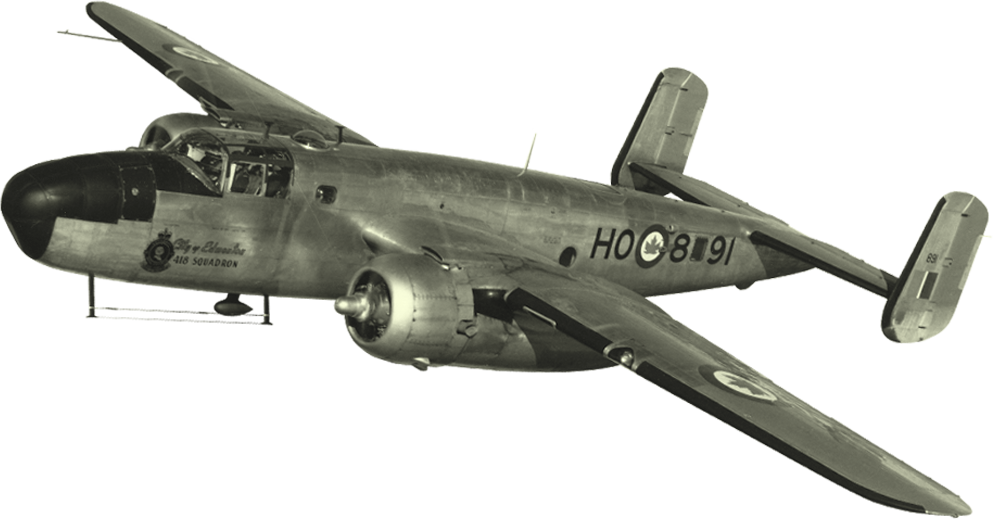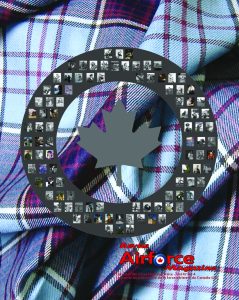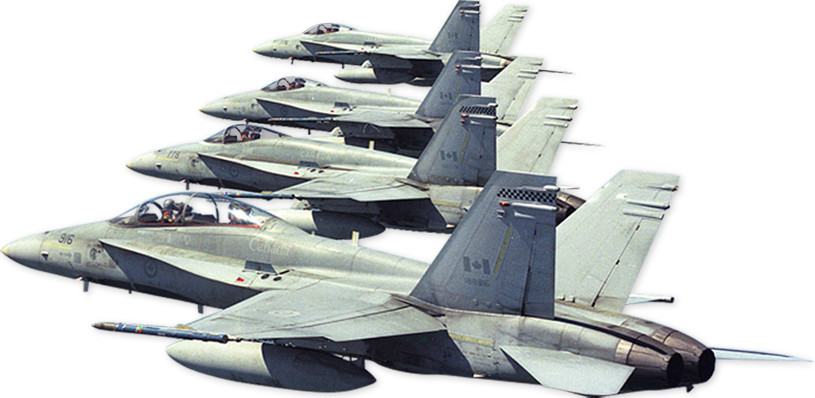DUNSFORD,
Robert Malcolm
Flying Officer,
SEE DESCRIPTION,
J15203
see Smith, F/L Albert Ivan (J15203).
RCAF Personnel Awards 1939-1949
Description (click to view)
DUNSFORD, F/O Robert Malcolm (J15203) - see Smith, F/L Albert Ivan (J15203).
SMITH,
Albert Ivan
Flying Officer,
No.272 Squadron (now retired),
J15203
Distinguished Flying Cross
RCAF Personnel Awards 1939-1949
Description (click to view)
SMITH, F/O Albert Ivan (J15203) - Distinguished Flying Cross - No.272 Squadron (now retired) - Award effective 10 October 1942 as per London Gazette dated 11 June 1943 and AFRO 644/44 dated 24 March 1944. Born 11 August 1916. Home in Islington, Ontario; enlisted in Toronto, 23 August 1940. To Trenton, 30 September 1940. To No.1 ITS, 16 November 1940; graduated and promoted LAC, 8 December 1940 when posted to No.9 EFTS; posting changed on 14 December 19140 to No.10 EFTS; graduated 28 January 1941 when posted to No.5 SFTS; graduated and promoted Sergeant, 21 June 1941. To Embarkation Depot, 3 July 1941; to RAF overseas, 5 July 1941. Commissioned 7 February 1942. Promoted Flying Officer, 1 October 1942. Further trained at No.2 (C) OTU, Catfoss, where he was paired with F/O Jack Peter Diaper, RAF, a former employee of Imperial Airways. Repatriated 27 September 1943. Retired 18 January 1944. Smith later changed his name to Robert Malcolm Dunsford. Award sent by registered mail, 9 November 1948. Photo PL-19686 shows A/M Harold Edwards meeting first Canadian-built Lancaster; left to right are A.I. Smith, DFC (personal assistant to Edwards), Mr. C.A. Banks (representing Department of Munitions and Supply), Edwards, Vincent Massey (back to camera) and F.G. Wait (Director of Personnel, RCAF overseas). PL-21644 shows him alone, 6 September 1943. The following victories are listed by Chris Shores in Aces High (2nd edition): 11 March 1942, one Ju.88 destroyed over convoy near Tobruk (No.252 Squadron); 24 July 1942, one Ju.88 destroyed (No.272 Squadron); 30 September 1942, one He.111 and one Ju.88 destroyed (No.272 Squadron, Beaufighter "P"); 26 October 1942, one He.111 destroyed (No.272 Squadron, Beaufighter "U").
This officer has participated in numerous sorties in which he has attacked shipping, petrol barges, road transport and troops. He has destroyed four enemy aircraft and damaged others. Flying Officer Smith's high standard of personal courage and devotion to duty has been an example to the other members of his flight.
NOTE: Public Record Office Air 2/8933 has the earlier text of the recommendation for a non-immediate award, sent on 21 December 1942 from Headquarters, Royal Air Force, Middle East to Air Ministry.
This officer has flown over 170 hours on operations in the Middle East. He has completed sorties which include attacks on shipping, petrol barges, road transport and troops. During the course of these operations he has destroyed four enemy aircraft and damaged four others. By his high standard of personal courage and devotion to duty he has set a fine example to the other members of his flight.
Public Record Office WO 208/3313 has a remarkable story of evasion involving both Smith and Diaper. They had left Algiers on 5 June 1943; reached Prestwick on 11 June 1943, and were interviewed by MI.9 on 14 June 1943.
We took off from Takali (Malta) about 1615 hours on 10 November 1942 to bomb El Auina, between Tunis and Cathage. Owing to our engine bursting into flames, we had to land our aircraft, a Beaufighter Mk.Ic, on the beach at Bou Ficha (Tunisia) about 1730 hours. After we had burned the aircraft, a crowd of Arabs and French soldiers gathered and we were arrested and taken to the French military camp at Bou Ficha, where the Captain in charge told us we would be interned and that he would send us to Tunis.
We got away from a barrack room in the camp about 0300 hours on 11 November by walking past a guard at the door who was asleep. We had no maps, but started walking north, our idea being to continue to the outskirts of Tunis and then turn west.
After we had covered about 30 miles we were caught by the French Air Force captain who was on his way to Bou Ficha to fetch us. He took us to Tunis, where his superiors told him to help us to get away by providing clothing and maps. The French captain asked the assistance of Mr. Doolottle, the United States Consul, who put us into the unoccupied British Consulate at La Marsa, saying that the Americans would be there in two or three days.
On 13 November the Germans arrived at the house, but we got away through the back door wearing burnouses, which the American Vice-Consul (Mr. Utter) had given us. We then hid in an old Roman well at the bottom of the garden. Thw well was about 60 feet deep and 15 feet wide, and about ten feet down there was a hole in the wall. The mouth of the hole was about four feet square and the end of it about 12 feet deep. We remained hiding here till some time between 20 and 23 November, the British gardener of the Consulate and his wife bringing us food, bread and oranges at night.
We left the well just after dark on 20 or 23 November, and wearing our burnouses, went to the gardener’s house and were joined by a Maltese. Our destination was the cemetery of Le Kram. When we got off the tram the gardener’s talking attracted the attention of Italians who followed us. We went past the cemetery, through some fields, and round the cemetery again, but could not get rid of our pursuers. We then left the gardener, threw our burnouses over the cemetery wall, and ran off with the Maltese. The Italians followed, but we managed to elude them.
The Maltese took us to the house of an old school mistress of his in Kedredine, where we stayed till the next night. The brother of the school mistress then found us shelter with a Frenchman in Kheredine with whom we stayed just over two weeks till 12 or 13 December.
During this time the Maltese was collecting civilian clothes for us. Our helpers thought it would be impossible for us to get through the German control area round Tunis. We decided to take the chance and persuaded our host to take us into Tunis. On the way we were sheltered for a day at Hammam-Lif. While we were there the Maltese brought us news or an organisation that would help us. We were handed over to this organisation and remained in Tunis till the Allied occupation on 8 May 1943.
F/O Smith
About the end of March 1943 I was living in an empty apartment near the docks in Tunis. Having heard that people in the neighbourhood were talking about me, I decided to consult a helper about other accommodation. On my way to this helper’s house I was stopped by a German officer who asked me in French for directions. As he was speaking to me he glanced at my desert shoes, which I had had dyed, and, speaking in perfect English, told me I belonged to the Eighth Army. He called two German soldiers, who fetched two other soldiers in a small car. One soldier drove the car and the other, armed with a Tommy gun, sat beside me in the back. I had a small revolver and, presenting it, I picked the gun from the soldier’s lap and told him to stop the car. He did so and I made both soldiers get out and walk up the road, covering them with the Tommy gun. They had their revolvers in the car. I got into the car, turned it, and drove towards the city. After a bit I ditched the car and walked into Tunis, returning to the empty apartment.
F/O Smith and F/O Diaper
After interrogation at Tunis early in May 1943, we went to Cairo and reported to Headquarters, 201 Group, RAF and then to Personnel Branch, GHQ Middle East. We left Cairo on 28 May and travelled via Algiers to Marrakesh. We travelled from Marrakesh to Prestwick by air, arriving on 11 June.
FURTHER NOTE: RCAF Routine Orders dated 12 September 1941 carried the following item under heading “Sentence of District Court-Martial”:
1. No.R71686 Leading Aircraftman Albert Ivan Smith, an airman of the Royal Canadian Air Force serving at No.5 Serving Flying Training School, RCAF, Brantford, Ontario, was tried by a District Court-Martial on the 13th day of April 1941, and was found guilty on the following charges:
(a) Foolhardy and dangerous flying contrary to Station Standing Orders.
(b) Low flying in an unauthorized area without an instructor contrary to Station Standing Orders.
(c) Practised forced landings in an area not specifically indicated by an instructor contrary to Station Standing Orders.
(d) Negligently damaging one of His majesty’s aircraft when flying too low.
(e) Being guilty of an act in flying which was likely to cause injury to a person.
2. He was sentenced to forty-one days detention. The finding and sentence having been confirmed by the Air Officer Commanding, No.1 Training Command, Toronto, Ontario, was promulgated to the accused.








